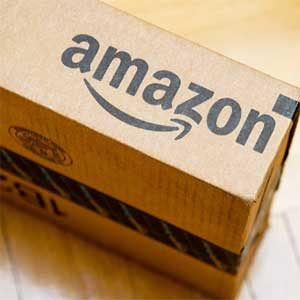
Amazon entered the private label business in 2009 with a decidedly unglamorous product—the basic battery.
But as New York Times business writer Julie Creswell reports in “Amazon, the Brand Buster“—an incisive retail story that ran in the newspaper and online this weekend—in just three years, the online retailer has snatched around one-third of the overall battery sales on Amazon, outselling both Duracell and Energizer.
Amazon went on to extinguish the fires of competition in several similarly humble categories—dog food, cables, and men’s underwear among them—leading up to its recent debut of eight private label clothing collections, each with a millennial-baiting brand name; there’s Goodthreads (mens’ casual apparel), Lark & Ro (women’s clothing), Spotted Zebra (kids’ clothes), and others.
Now some retail watchers are wondering if Amazon’s private label business might be gobbling up too much of the total retail pie—and even steering the company toward a potential monopolization case.
Financial analysts’ forecasts told Creswell that nearly half of all online shopping in the United States will be conducted on Amazon’s platform in the next couple of years—which would more than double the revenue of Amazon’s in-house brands to $25 billion in the next four years. That’s $25 billion from in-house brands alone.
Creswell talked to several retail experts, professors, and financial analysts for the exhaustive article. And while most conceded that Amazon’s unique capabilities—which include collecting massive amounts of data on its consumers and extensively testing new products before rolling them out—gave the company a near-unbeatable advantage in the marketplace, only one said he felt that advantage may be unfair in the legal sense.
“I think there is a potential monopolization case against Amazon,” Chris Sagers, an antitrust professor at the Cleveland-Marshall College of Law in Ohio, told Creswell. “The Amazon marketing people are geniuses. They’re brilliant. But if they are getting massive penetration in the market and preventing customers from buying products from their competitors? Well, it’s like they’re writing the plaintiff’s complaint for them.”
Read the entire story here.
(Photo courtesy of Amazon)
Follow JCK on Twitter: @jckmagazine
Follow JCK on Facebook: @jckmagazine